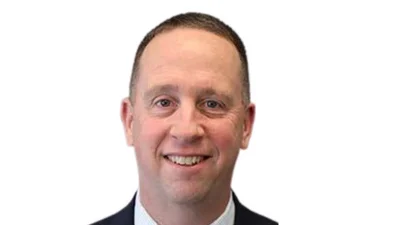Sen. Craig Wilcox (R-McHenry) | Craig Wilcox/Facebook
Sen. Craig Wilcox (R-McHenry) | Craig Wilcox/Facebook
State Senator Craig Wilcox said in his e-newsletter that a variety of factors, including legislation passed last fall, are contributing to the increase in electricity rates downstate as well as the potential for Illinoisans to experience power outages this summer.
"In the 32nd District, electricity is provided by Commonwealth Edison (ComEd). While ComEd customers have seen an increase in their bills, the increase we're seeing is nothing like what downstate consumers are experiencing. Downstate, where consumers rely on Ameren Illinois for energy, they are bracing for a more than 40% increase in electric rates. Not only will this rate increase lead to higher electric bills that customers can expect to see in late June/early July, but there will also be the potential for controlled outages and brownouts this summer. ComEd customers could also experience the rolling outages and brownouts. Why are ComEd customers not experiencing the same sharp cost increases right now that downstate consumers are seeing? First of all, ComEd customers are already paying more on their bills for the nuclear plant subsidy due to the Pritzker Climate law (SB 2408) which passed in September of 2021. And for now, subsidies and rebates are in place to protect ComEd consumers. Unfortunately, those protections expire soon, and without further action to lock in future costs, ratepayers in this region will see big rate hikes as soon as this fall," said Wilcox.
Midcontinent Independent System Operators (MISO), the energy grid that serves the majority of Illinois, issued a "maximum generation alert" for June 15, spiking concerns about potential rolling blackouts later this summer, The Center Square reported. MISO's alert stated, "The reason for the Event is because of Forced Generation Outages, Above Normal Temps, High Congestion." City Water Light and Power (CWLP) chief engineer Doug Brown told WMAY that rolling blackouts are a "last resort" and "something that we don't want to do but in order to support the regional grid, we're really required to do that."
The Washington Post described southern Illinois as "among the most vulnerable places in the country heading into the summer," pointing to coal plants shutting down rather than investing in upgrades to meet government regulations, Wirepoints reported. Energy costs have already soared across the entire state, not just the part covered by MISO. The City of Springfield has already requested that Illinoisans reduce energy consumption. The president of Amaren, which supplies electricity to MISO, predicted in an op-ed that Amaren customers could see increases of up to 54% in their energy bills this summer.
Inflation, the conflict in Ukraine, and the closure of coal plants have contributed to the soaring prices, but Illinois' Clean Energy and Jobs Act (CEJA) has also played a major role in driving up costs and reducing capacity, according to Wirepoints. The legislation, which its sponsors called "the most aggressive, most progressive climate bill in the nation," will require Illinois to be powered by 100% renewable energy by 2050. "Illinois has continued to fail miserably to provide enough renewable energy, and we've told them repeatedly you can't shut down coal and gas plants unless you have enough energy to backfill it, and that's what happening now," said Mark Denzler, president of the Illinois Manufacturers Association.
Gov. Pritzker has denied that the green energy legislation he signed is to blame for Illinois' energy crisis, according to The Center Square.





 Alerts Sign-up
Alerts Sign-up